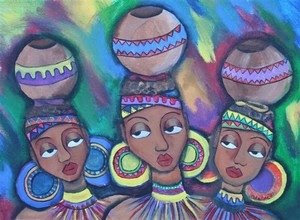 “The White Man’s Burden” is the title of a nineteenth-century poem by the English poet Rudyard Kipling. The poem is perceived by many literary critics as a racist argument for Western imperialism. According to them, it is a blatant call for white supremacist values to salvage the rest of the world from the "darkness of their cultures". Whether Mr. Kipling, lying in his deep dark grave, agrees with this reading of his poem or not, centuries of colonialism and occupation proved the ideology to be a complete failure.
“The White Man’s Burden” is the title of a nineteenth-century poem by the English poet Rudyard Kipling. The poem is perceived by many literary critics as a racist argument for Western imperialism. According to them, it is a blatant call for white supremacist values to salvage the rest of the world from the "darkness of their cultures". Whether Mr. Kipling, lying in his deep dark grave, agrees with this reading of his poem or not, centuries of colonialism and occupation proved the ideology to be a complete failure.Today, though, the “white man” seems to be carrying a different type of burden. That is the heavy shadows of the past years of arrogant racism. Take modern German history as an example. Inarguably, one of the most sensitive spots in German collective sub-conscience today is the Nazi era. The post Second World War generations feel compelled to sever any ties of sympathy with anyone who had been involved in the Holocaust. Quite naturally, many still haven’t figured out how to reconcile with such a disturbingly ever-present past.
Another example can be seen in South Africa, which ended its apartheid regime less than two decades ago. While it is admirable how the country managed a transition to democracy through nonviolent means, the tension between different races in the country can still be strongly felt. High crime rates, among other indicators, reflect tensions of the present and violence of the past. However, as an observer, I find it quite notable that many seem obliged to over-emphasize patriotic bonds and paint a bright harmonious picture of multi-ethnic relations evading any deep examination of the issue.
Germany and South Africa are hardly the only two examples. Many complex issues of the sort exist across the globe where a racial conflict had recently risen. Can we look at this modern “burden” as a part of the healing process that will eventually lead to reconciliation? Is it that ugly scar that reminds you not to play with a knife again? The world is certainly shifting to a more politically and economically decentralized state away from the imperialist models of the past centuries. Many would argue that that is not the case culturally, but I seriously doubt that the masses would be enthusiastically flocking towards any blatantly pro-colonialist best-sellers hitting the book stands or box offices any time soon. At least we can relax that Kiplings of the world had their day and is now gone.
(Painting from Ohio State University Gallery)


























